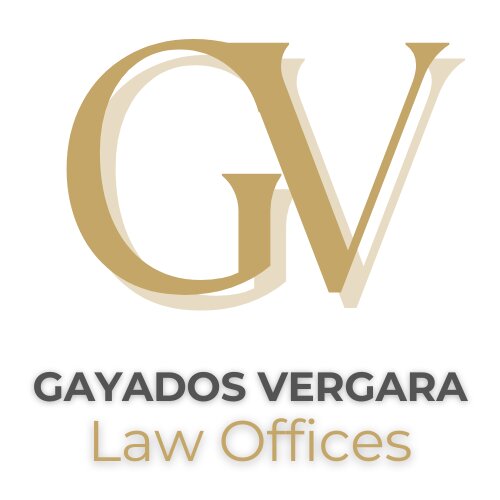Best Energy, Environment & ESG Lawyers in Philippines
Share your needs with us, get contacted by law firms.
Free. Takes 2 min.
Or refine your search by selecting a city:
List of the best lawyers in Philippines
About Energy, Environment & ESG Law in Philippines
Energy, Environment, and Environmental, Social, and Governance (ESG) law in the Philippines is a growing area of legal practice that addresses issues related to the development and regulation of energy projects, environmental protection, and sustainable corporate practices. This field deals with government regulations, compliance requirements, and policies concerning how companies operate in an environmentally responsible manner, how energy projects are developed and managed, and how businesses align with global standards for ESG. The Philippines has a dynamic legal landscape due to its rich natural resources, the increasing demand for renewable energy, and heightened attention to climate change and sustainable development.
Why You May Need a Lawyer
There are several situations where seeking legal advice in the Energy, Environment, and ESG field becomes critical:
- Setting up energy projects such as renewable energy plants, fossil fuel power plants, or mining operations
- Obtaining permits and licenses for activities that may impact the environment
- Ensuring compliance with local and international environmental standards
- Addressing violations or penalties related to environmental laws or energy regulations
- Drafting and negotiating contracts for energy supply, carbon credits, or waste management services
- Conducting environmental due diligence for mergers, acquisitions, or project financing
- Responding to complaints from affected communities or regulatory agencies
- Developing corporate sustainability and ESG strategies for disclosure and reporting
Legal professionals provide valuable assistance by navigating complex regulations, representing clients before regulatory bodies, and managing disputes related to energy and environment matters.
Local Laws Overview
The Philippines has established a comprehensive framework governing Energy, Environment, and ESG matters. Notable laws and regulations include:
- Renewable Energy Act of 2008 (Republic Act No. 9513): Promotes the development, utilization, and commercialization of renewable energy resources, with incentives for investors and developers.
- Clean Air Act of 1999 (Republic Act No. 8749): Regulates air quality and sets emission standards for industries and motor vehicles.
- Philippine Environmental Impact Statement (EIS) System (Presidential Decree No. 1586): Requires environmental impact assessments for proposed projects that may significantly affect the environment.
- Ecological Solid Waste Management Act of 2000 (Republic Act No. 9003): Mandates proper management of solid waste from collection to disposal.
- Energy Efficiency and Conservation Act (Republic Act No. 11285): Establishes standards and guidelines to encourage energy efficiency across industries and households.
- Corporate Governance Code for Publicly Listed Companies: Encourages companies to adopt ESG principles in their business operations and disclosures.
- Water Code of the Philippines: Governs the appropriation, utilization, development, and protection of water resources.
Compliance with these laws is monitored by agencies such as the Department of Energy (DOE), Department of Environment and Natural Resources (DENR), and the Securities and Exchange Commission (SEC), among others.
Frequently Asked Questions
What is ESG and why is it important for businesses in the Philippines?
ESG stands for Environmental, Social, and Governance. It refers to the set of standards for a company’s operations that socially conscious investors use to screen potential investments. Companies in the Philippines are increasingly adopting ESG practices to attract investors, ensure regulatory compliance, and meet customer and stakeholder expectations.
Do I need a permit to develop a renewable energy project?
Yes, you need different permits and approvals from various government agencies, including those regulating environmental impact, energy generation, land use, and local government clearances. Legal consultation helps ensure all necessary documents are secured.
How can companies ensure compliance with environmental laws?
Regular environmental audits, proper documentation, updating operational procedures, and engaging legal counsel to review compliance requirements are practical ways for companies to meet legal obligations and avoid penalties.
What are the penalties for violating environmental regulations?
Penalties can range from fines, suspension of business operations, revocation of permits, and in some cases, criminal liability for responsible individuals. The severity depends on the nature and impact of the violation.
What is an Environmental Compliance Certificate (ECC)?
An ECC is a document issued by the DENR certifying that a proposed project will not cause significant negative environmental impacts, provided certain conditions are met. It is usually a prerequisite for project commencement.
Are there incentives for investing in renewable energy?
Yes, the Renewable Energy Act offers various incentives such as tax holidays, duty-free importation of equipment, and priority connections to the grid for renewable energy developers and investors.
What is the role of the Department of Energy (DOE)?
The DOE formulates policies and enforces regulations related to the exploration, development, and optimal use of energy resources in the country, with a focus on balancing energy supply security and sustainability.
Is ESG reporting mandatory for companies?
It is mandatory for publicly listed companies to submit sustainability reports to the SEC. Other companies are encouraged to adopt ESG reporting as part of their corporate governance and social responsibility initiatives.
Can communities contest energy projects affecting their area?
Yes, affected communities can raise concerns during the Environmental Impact Assessment process, participate in public hearings, and even challenge permits or project approvals if due process was not followed or compliance is lacking.
What are the main challenges in complying with Energy and Environmental laws?
Main challenges include complex permitting processes, evolving regulations, the cost of compliance, inter-agency coordination, and the need for technical expertise in navigating both national and local procedures.
Additional Resources
If you need more information or assistance, the following organizations and government agencies can be helpful:
- Department of Energy (DOE) - For energy-related permits, programs, and policies
- Department of Environment and Natural Resources (DENR) - For environmental compliance, ECC, and monitoring
- Securities and Exchange Commission (SEC) - For ESG disclosures and corporate governance requirements
- National Renewable Energy Board (NREB) - For guidance and incentives on renewable energy
- Environmental Management Bureau (EMB) - For solid waste management, air, and water quality issues
- The Philippine Green Building Council - For sustainable development and construction
- Local government units (LGUs) - For local clearances and ordinances affecting energy or environmental projects
- Non-Governmental Organizations (NGOs) such as WWF-Philippines and Haribon Foundation - For advocacy and awareness
Next Steps
If you require legal assistance in Energy, Environment, or ESG matters in the Philippines, here are some suggested steps:
- Gather all relevant documents and details about your project or concern
- Identify your specific legal needs - whether it involves permits, contracts, compliance, disputes, or policy guidance
- Consult a legal professional or law firm specializing in Energy, Environment, and ESG law
- Coordinate with appropriate government agencies to clarify regulatory or compliance requirements
- Consider participating in workshops or forums on relevant topics to stay informed about developments in this field
- Regularly monitor updates to regulations, incentives, and compliance programs relevant to your industry or project
Taking early and proactive steps helps you successfully navigate the complexities of Energy, Environment, and ESG regulations in the Philippines and minimizes the risk of costly delays or penalties.
Lawzana helps you find the best lawyers and law firms in Philippines through a curated and pre-screened list of qualified legal professionals. Our platform offers rankings and detailed profiles of attorneys and law firms, allowing you to compare based on practice areas, including Energy, Environment & ESG, experience, and client feedback.
Each profile includes a description of the firm's areas of practice, client reviews, team members and partners, year of establishment, spoken languages, office locations, contact information, social media presence, and any published articles or resources. Most firms on our platform speak English and are experienced in both local and international legal matters.
Get a quote from top-rated law firms in Philippines — quickly, securely, and without unnecessary hassle.
Disclaimer:
The information provided on this page is for general informational purposes only and does not constitute legal advice. While we strive to ensure the accuracy and relevance of the content, legal information may change over time, and interpretations of the law can vary. You should always consult with a qualified legal professional for advice specific to your situation.
We disclaim all liability for actions taken or not taken based on the content of this page. If you believe any information is incorrect or outdated, please contact us, and we will review and update it where appropriate.
Browse energy, environment & esg law firms by service in Philippines
Philippines Attorneys in related practice areas.
Browse energy, environment & esg law firms by city in Philippines
Refine your search by selecting a city.
















